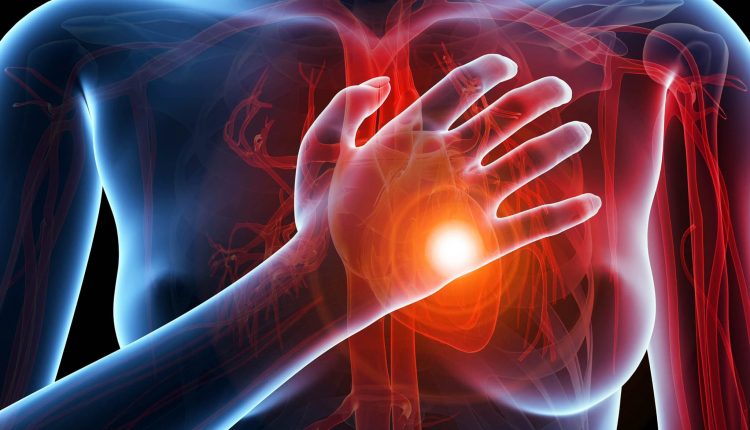
Silent heart attack: what is silent myocardial infarction and what does it entail?
Silent heart attack: Also called silent ischemia or a silent myocardial infarction, it may present with minimal, unrecognized or no symptoms at all
And it is more common than one might expect, said Dr. Michael Kontos, a cardiologist with VCU Health Pauley Heart Center in Richmond, Virginia.
Of the estimated 805,000 heart attacks each year in the U.S., a projected 170,000 of them are silent heart attacks, according to statistics from the American Heart Association
“Most people would accept that women and people with diabetes are more likely to have silent or unrecognized (heart attacks),” Kontos said.
The symptoms of a silent heart attack can include indigestion, feeling like you have a strained muscle in the chest or upper back, or prolonged, excessive fatigue.
It is only later that evidence of a heart attack is discovered when a patient is being examined for another problem using an electrocardiogram or imaging test, such as an echocardiogram or cardiac MRI.
“Many times, people think that it is something else, and they get an EKG or echocardiogram and they end up getting diagnosed with a heart attack that they didn’t know they had,” said Dr. Leslie Cho, director of the Women’s Cardiovascular Center at the Cleveland Clinic.
“Oftentimes, people will say there was an episode where, ‘I was very short of breath or tired, but I thought I was working too hard,’ or whatever they thought it was.”
RESPONDING QUICKLY TO A HEART ATTACK: ZOLL DEFIBRILLATORS ON THE EMERGENCY EXPO BOOTH
The damage can vary, she said, with some people having “a silent heart attack in a small territory and the heart has performed its own natural bypass,” while others develop serious heart complications such as heart failure
Having a silent heart attack increases the risk of heart failure by 35% compared to people without evidence of a heart attack, according to a 2018 study in the Journal of the American College of Cardiology.
The risk was even higher in people in their early 50s and younger.
Silent heart attacks also may increase the risk of stroke, based on preliminary research presented earlier this year at the American Stroke Association’s virtual International Stroke Conference.
And in the long run, silent heart attacks appear to be just as deadly as diagnosed ones.
A 2018 study in JAMA Cardiology found participants with a silent heart attack fared progressively worse over time.
After 10 years, about half of them had died – the same death rate as participants who had a recognized heart attack.
Experts stress the need to educate the public about the more subtle symptoms of a heart attack and to not ignore them. Seeking early medical attention is important.
Since being diagnosed with a silent heart attack, Butts, now 77, has had surgery for breast cancer and recovered from COVID-19.
“She is very tough,” her daughter said. “Women spend so much of their time taking care of other people that they ignore their own pain.”
THE RADIO OF RESCUERS ALL OVER THE WORLD? IT’S RADIOEMS: VISIT ITS BOOTH AT EMERGENCY EXPO
Read Also:
Heart Patients And Heat: Cardiologist’s Advice For A Safe Summer
US EMS Rescuers To Be Assisted By Paediatricians Through Virtual Reality (VR)


